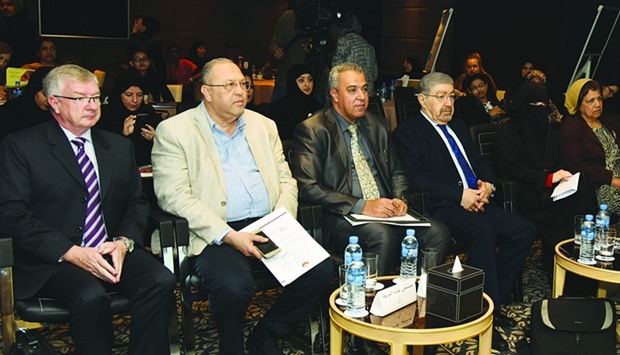"The ‘Marketing Breast Milk Alternatives’ law will now go to the cabinet for approval," MoPH’s Health Protection and Non-communicable Diseases director Sheikha Dr al-Anoud bint Mohamed al-Thani explained.
She was speaking on the sidelines of a five-day workshop on MoPH’s ‘Baby-friendly Hospitals Initiative,’ which began yesterday in collaboration with World Health Organisation and the United Nations Children’s Fund.
“The code was signed in 1998 and we need to make it into law. Now we have more force to implement it,” she pointed out. “There will be no promotion of breast milk substitutes or artificial milk, it will only be prescribed if needed badly.”
Such an initiative, Sheikha Dr al-Anoud stressed, also aims to increase exclusive breastfeeding rate in Qatar from 29% to 50% by the end of 2022. It is one of the goals of the National Plan for nutrition and physical activity and in line with the Qatar National Vision 2030.
She said the low breastfeeding rate was due to different myths about breastfeeding such as its negative effects on the woman’s body.
Some mothers, Sheikha Dr al-Anoud added, are scared that the milk coming from their breasts is not actually good for their baby.
Due to these myths, the MoPH plans to recruit and train more health care providers in Qatar to implement the initiative with high efficiency.
She said they will also launch a series of campaigns to raise awareness on the health benefits of breastfeeding to both the mother and child.
Sheikha Dr al-Anoud added that around 23 CEOs and senior officials of public and private hospitals in the country are participating in the workshop.
Move to increase maternity leave
The MoPH is working with the Ministry of Administrative Development, Labour and Social Affairs to increase the maternity leave to give more time for new and lactating mothers to breastfeed their babies,” said Health Protection and Non-communicable Diseases director Sheikha Dr al-Anoud bint Mohamed al-Thani
"It is necessary to protect, promote, and support exclusive breastfeeding from a child’s birth up to six months, and continue it for two years with the introduction of 'homemade complementary feeding.’


